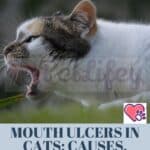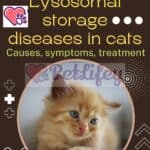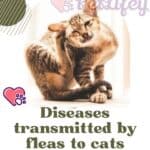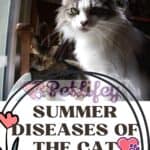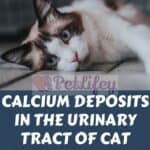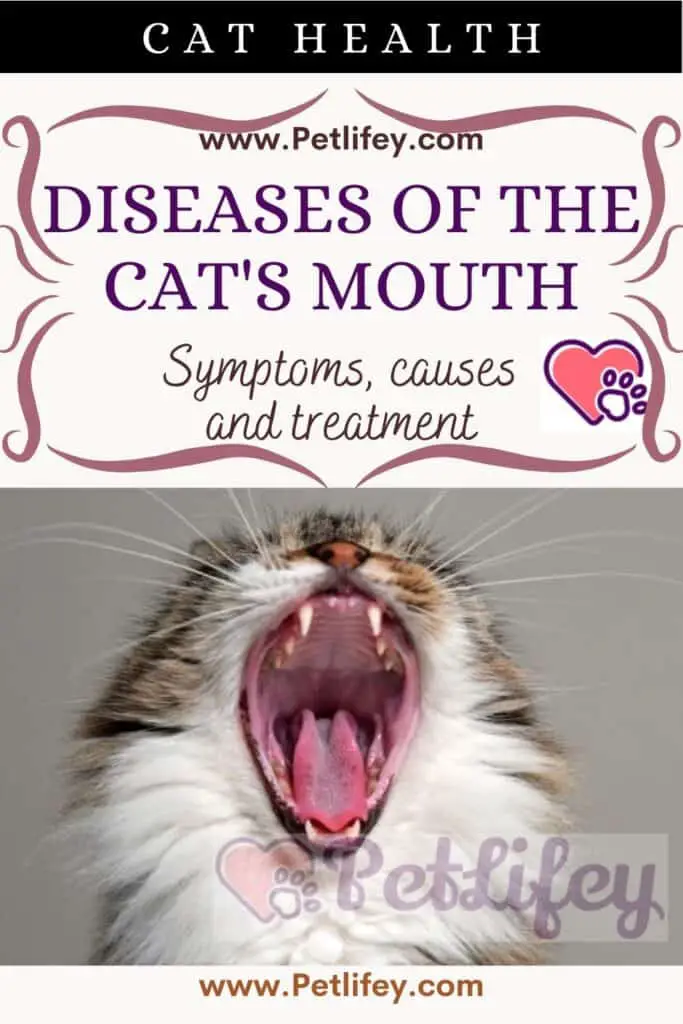
Who can resist the cat’s nose? Yet even this part of his body can get sick: what are the diseases of the cat’s mouth and how to cure them.
Small or large, the cat’s mouth is not just for eating: it is the means through which the cat is able to explore the world and its surroundings, to play and above all to do what it was born for: hunting. In fact, when his mouth gets sick it is as if the cat loses a fundamental tool for his life. He would get bored and might even get depressed precisely because he doesn’t know how to ‘taste’ the world around him. Let’s see what are the main diseases of the cat’s mouth and what are the best remedies to cure them.
Diseases of the cat’s mouth: symptoms
What can a cat’s mouth get sick with? We think that however, being its main exploration tool, it could easily come into contact with dirt, carcasses of putrid animals, etc. In short, we must be careful that it does not come into contact with all the things that could give rise to infections and diseases. At risk are: the oral cavity, teeth and gums. Here are the symptoms to note of the diseases that affect them the most and most frequently.
- Difficulty chewing,
- lack of appetite,
- excessive weight loss and anorexia,
- internal growths,
- excessive salivation,
- dry mouth,
- halitosis,
- exhaustion.
Diseases of the cat’s mouth: what they are
The diseases that affect the cat’s mouth can be very annoying and painful and, moreover, can have serious consequences on his state of health. Later we will see how to prevent them, but for now let’s do a quick ‘rundown’ of the main pathologies that can affect our beloved domestic feline.
- Tartar: that the cat’s mouth is full of bacteria, it is completely normal. When they join with food and other debris, they form dental plaque, which can worsen and lead to tartar. To eliminate it will be enough a correct oral hygiene and the use of objects and specific snacks for the teeth.
- Gingivitis: it is an inflammation of the gums, caused by tartar. It is bacteria that inflame the gums and must be treated with antibiotics. The obvious symptoms will be: bleeding, itching, redness and inflammation of the part.
- Periodontitis: When the infection reaches the teeth, then the disease will no longer be curable. Paradoxically, the main problem will not only be the teeth (which could be extracted) but the pus that comes out of the gums and that could be ingested by the feline. This substance will in fact affect various internal organs, such as the kidneys, liver and even the heart.
- Dental resorption: that is, the part that covers the tooth is consumed until it is left uncovered and fragile. In fact, the tooth often breaks or falls out, and this prevents the cat from eating properly and drooling frequently. If the vet does not deem tooth extraction necessary, he may prescribe some antibiotics.
- Stomatitis: it is the mucous membrane of the mouth that becomes inflamed due to the presence of bacteria. Symptoms are: redness, excessive salivation and tissue irritation. The breeds of cats that suffer the most are: Abyssinian, Burmese, Maine Coon, Persian and Siamese .
- Carcinoma: is cancer of the mucous membranes of the mouth. It presents with growths, ulcers and peeling of the tissues. Radiotherapy is often required to cure it, but the metastases could easily spread to other surrounding areas that cannot always be operated on.
- Enamel absorption: This is a disease in which the cat swallows parts of the enamel on its own teeth. Certainly the teeth will look different than usual, perhaps with red spots on the fabrics.
Hygiene and oral prevention in the cat
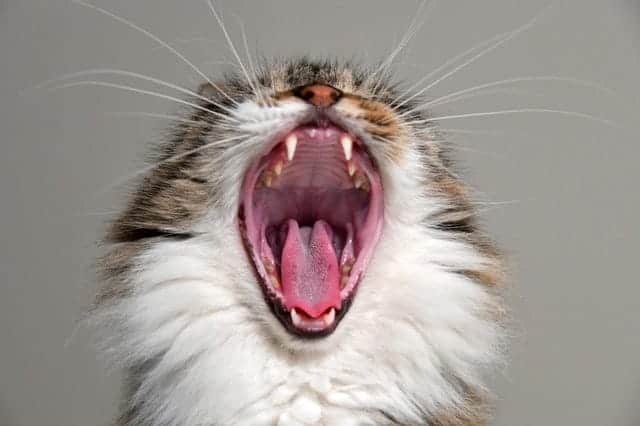
The correct oral hygiene of our beloved feline is essential to avoid the onset of these terrible diseases of the mouth which, as we have seen, do not only affect the mouth. It is not just about brushing your teeth well, but also about using products suitable for this purpose such as toothbrushes and toothpastes, at least once a week. It is important that the cat never drinks putrid and dirty water, which can contain bacteria. There are toys, snacks and items on the market that can help cats keep their teeth strong and clean.
The same vet may recommend the use of vitamins to be given to the cat to make bones and teeth stronger. It will be up to the doctor to make visits to the mouth to rule out the onset of these diseases.

